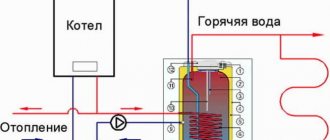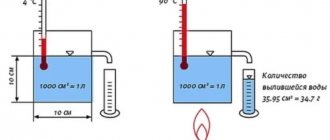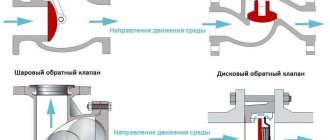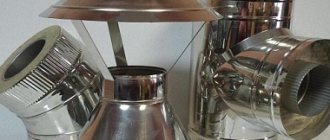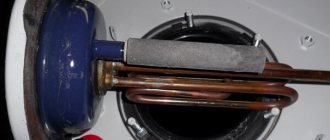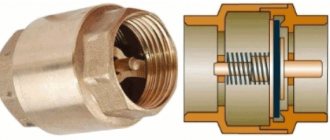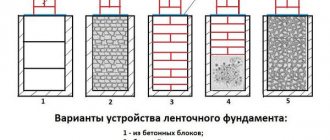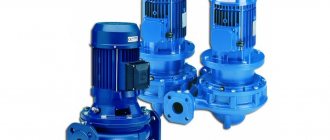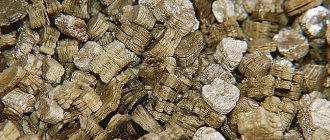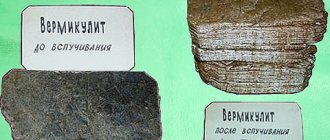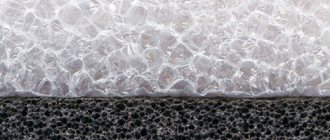The soil for growing all types of crops cannot be the same. Different soil characteristics are typical even in the same region. But there is one feature that needs to be corrected and corrected - loosening.
This procedure will be required for heavy types of soil. The use of vermiculite will help the procedure to increase permeability. An additional advantage is the accumulation of water in all types of soil. This means that there is an increase in moisture exchange, which is vital for the plant. The method has been tested for a century.
What is vermiculite? Places of its extraction
In the 19th century, a yellowish mineral with an admixture of bronze, brown, brown, green and golden tones was accidentally discovered in Massachusetts. This unsightly-looking plate-like crumbling pebble did not arouse any interest at first. It took humanity more than a hundred years to appreciate its amazing properties.
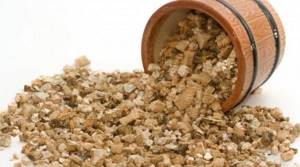
A major role in the development of technologies for the use of this mineral belongs to the Soviet scientist-practitioner Yakub Akhmyatov. Thanks to him, vermiculite gained fame and found its industrial application.
This layered mineral belongs to the group of hydromicas. It owes its name “vermiculite” to its properties. The mineral was formed as a result of complex natural processes. In places where volcanoes were active, the temperature of mica deposits in Celsius reached almost 1000 degrees. Under the influence of high temperature, the moisture between the layers of the mineral evaporated, and its size increased many times over. Water vapor did its job: it expanded the lamellar contents of the mineral, and worm-like threads were formed from thin layers of mica.
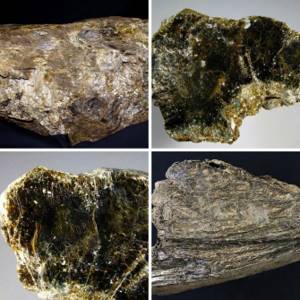
Therefore, the researchers dubbed the mineral “vermiculus,” which translated from Latin means “worm-like.”
Currently, the extraction of this valuable mineral is carried out in Russia, Ukraine, Kazakhstan, Uzbekistan, South Africa, America, Australia, and India. In Russia, the largest vermiculite deposits were found on the Kola Peninsula, Siberia and the Urals.
Physico-chemical characteristics of vermiculite
In nature, this mineral has a discreet but noble color. In vermiculite placers you can find shades of silver, brown, golden and black.
Its composition is no less rich. Many useful microelements were found in it. Vermiculite does not contain toxic components, therefore it is recognized as an environmentally friendly substance.
Due to the presence of a number of useful properties, it enjoys deserved popularity among plant growers. The mineral used to improve soil is almost eternal.
- It does not rot or decompose. He is not afraid of natural and biological influences.
- Microorganisms, insects, rodents and other small animals do not like it, which means that they will not spoil it.
- The mineral has truly fantastic moisture-absorbing properties. Just 100 g of this highly porous substance can absorb 400 ml of water.
- At the same time, it absorbs very little moisture.
- Another amazing property of the mineral that cannot be ignored: when heated to 1000 degrees, it increases 25 times.
All its beneficial properties together came in handy in the field of agriculture. The mineral is readily used by gardeners and flower growers.
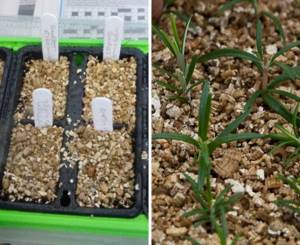
Properties of vermiculite
- Does not rot or decompose
- Not affected by rodents and insects
- Ecologically pure
- Weakly hygroscopic
- High heat and sound insulation
- Does not react to acids and alkalis
- High water absorption coefficient
- Temperature resistant
- Improves soil composition
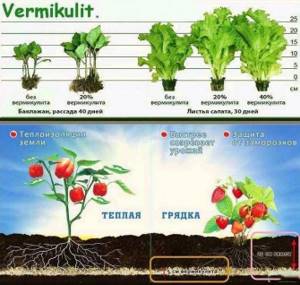
Application
To get the desired effect, you need to know how to use vermiculite - the rate of application of the mineral matters.
Improving soil structure and compost
To increase the looseness and air permeability of soil with a heavy structure (primarily clayey), 2 liters of vermiculite are added for digging per cubic meter of area. Compost can be made more loose by adding 10 liters of vermiculite per 30 kg of mixture.
Deoxidation
An acidic environment is not suitable for many ornamental, vegetable, and fruit crops. To neutralize the pH to a level of 5.5–6.5, you need to mix 1:1 agrovermiculite with perlite and add half a bucket of the mixture per 1 square meter of area.
The material has an additional positive property - it prevents soil salinization.
Germination of seeds
A natural growth stimulator accelerates germination and improves seed germination. Before sowing, they are germinated in the finest agrovermiculite. Take pure mineral without any impurities. It is poured into a tray or box and moistened well. The seeds are laid out on the surface and covered with a thin layer of substrate. Cover the tray with film and put it in a warm place. Sprouted seeds are washed before planting.
How is vermiculite processed?
In nature, vermiculite is usually found in the form of large pieces of the mineral hydromica. In order for it to acquire a form suitable for use in crop production, it requires appropriate industrial processing. After thermal treatment, hydromicas turn into bulk material. Vermiculite is fired at processing factories in special furnaces. At high temperatures, its scales separate, and it itself increases in volume almost 50 times and swells. During further processing, the mass of expanded mineral is crushed to the state of a free-flowing, porous and very light material.
How to use vermiculite in the garden, in the garden, at home. Areas of its application
Over the past decades, vermiculite has become firmly established in crop production. Agricultural specialists and amateur plant growers readily use this mineral for mulching, drainage, improving the general condition of the soil, germinating seeds and growing seedlings.
In the garden.
Modest in appearance, vermiculite can be called the best business partner for gardeners. The range of its application in horticulture is wide and multifaceted.
- Gardeners often use it to improve soil quality. For this purpose, the mineral is added to the soil, and it becomes looser and more moisture-absorbing. When planting shrubs and seedlings, it is difficult to find an analogue to vermiculite. It significantly accelerates the rooting and development of plants.
- A solution of preparations of the “Fine” and “Medium” brands will strengthen the resistance of seedlings to diseases and soon the young trees will delight gardeners with their healthy, cheerful appearance and high productivity.
- Experienced gardeners use mixtures of the brands “Large”, “Fine” and “Medium” to mulch the ground around tree trunks. An amount of substrate from 6 to 10 liters can be processed per square meter, and this will reliably protect the soil from drying out, regulate the water-air regime, provide protection from weeds, and prevent lying fruits from rotting.
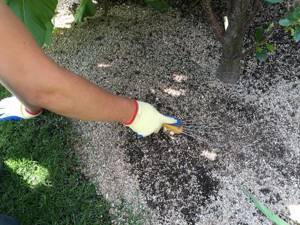
In the garden.
Vermiculite provides invaluable assistance to gardeners. Its applications in gardening work are multifaceted. If this mineral is used wisely at the beginning of the season, it will significantly increase the chances of getting a good harvest.
- To increase the fertility of garden soil, the mineral is mixed with peat or ordinary soil. It gives the compost looseness and porosity.
- Vermiculite is also used for seed germination, cuttings, growing fruit and vegetable crops in the garden and greenhouses, and mulching.
- When planting potatoes, gardeners add 10-15 grams (0.5 tablespoon) of vermiculite granules to each hole. This measure makes it possible to obtain a high yield of this crop. At the same time, the plant becomes more resistant to root rot and increases productivity by 15-17%.
- And even when the crop is harvested, vermiculite will help extend its shelf life. I sprinkle potatoes, onions, garlic, carrots, and beets in rows of wooden boxes with vermiculite granules. Vegetables release gas exchange products during storage. Vermiculite, due to its low hygroscopicity, adsorbs the secretions produced by the fruits, thereby preventing them from rotting.
- In the future, the spent vermiculite can be used to produce compost or mulch the soil. If you heat it, it will again be suitable for storing fruits.
At home.
Experienced gardeners achieve significant success in preparing soil for indoor plants by skillfully using the appropriate brand of preparation containing vermiculite.
- For indoor flowers with a small root system, “Fine” brands are well suited.
- If the roots of indoor plants are well developed, it is better to use a mixture of “Fine” and “Medium” for them.
- For large plants growing in rooms and planted in tubs, mixtures of “Medium” and “Large” are provided in equal proportions.
Vermiculite is a good tool for cutting flowers. "Micron", a vermiculite-based substrate, helps cuttings take root better. All these preparations contain many minerals necessary for the development of indoor plants.
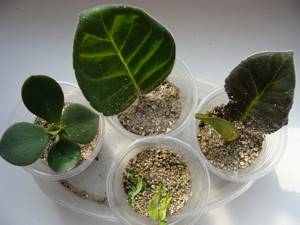
Thanks to the unique properties of the natural mineral vermiculite, they provide indoor plants with vital energy, stimulate their growth, regulate water-air exchange, and protect roots from mold.
The soil in pots with indoor plants, enriched with vermiculite, always remains in a loose state, which allows the root system to develop well. In the presence of this mineral, the temperature of the earthen coma is regulated. Thus, the soil in a pot standing on the windowsill is protected from overheating in summer, and from hypothermia in winter.
Vermiculite retains moisture well, so plants do not need frequent watering.
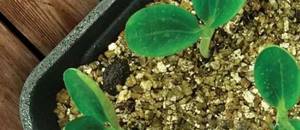
Substance concentration
The layered substance can be used as a covering material for storing flower bulbs and tubers, such as gladioli. They will not dry out, nothing will put pressure on the roots. But we must remember that it is not recommended to pour vermiculite into the soil by eye.
The concentration of the substance in the soil is important and depends on what plant the product is used for. To care for violets or begonias, one fifth of the total composition of the soil will be enough. For plants of the Palm family, the concentration is no more than 30% of the total volume of the substrate. For Dieffenbachia and hibiscus, the concentration should be the same as for violets.
Using standard agricultural technology, it is not recommended to increase the proportions of vermiculite to more than one to one in relation to the soil in the pot. The highest concentration should be 50%. This fertilizer is suitable for succulents. Vermiculite can also be used as compost for garden beds, mixing it with peat, manure and straw.
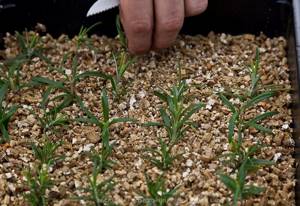
Vermiculite for plants. Features of the use of vermiculite in crop production
In a relatively short period of time, vermiculite has established itself as a reliable assistant for plant growers. It is used at almost all stages of plant growth: from seed germination to harvest. The mineral in all its indicators satisfies the needs of the most demanding gardeners and flower growers. It is affordable, easy to use, and effective.
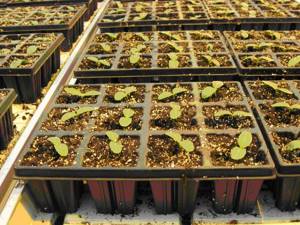
However, when working with it, you should remember some of the features of this natural mineral.
- First of all, you should know that when crushed it emits a lot of dust, so it is advisable to spray it with a spray bottle before use. But even after such a measure, you must work with him in a respirator or mask.
- One should also take into account the mineral’s ability to absorb large amounts of water and then slowly and over a long period of time release it to the plants. If you overwater, the soil may become waterlogged and the plants will die.
- The ability of a mineral to slowly release moisture to plants is also fraught with the fact that when using hard water, the acid-base balance of the soil may be disrupted towards alkalization. To eliminate this undesirable phenomenon, experienced plant growers use vermiculite in its pure form only for germinating seeds and seedlings, and for caring for hydroponic crops.
Advantages
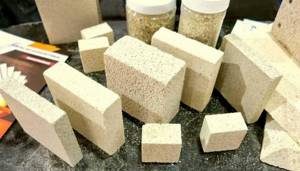
Vermiculite insulation is durable compared to mineral wool. The long service life is explained by the fact that the material does not collapse or become compressed over time. In this indicator, it is superior to expanded clay and perlite.
Compared to mineral wool, vermiculite boards have similar thermal conductivity and fire resistance. This insulation easily absorbs and releases moisture, so condensation does not form on the walls, provided that appropriate conditions are created for steam removal.
Vermiculite boards with a sheet thickness of 15 mm can withstand exposure to an open flame for 45 minutes. Therefore, they can be used for finishing the external parts of stoves and fireplaces.
In terms of sound absorption, vermiculite boards are superior to all previously mentioned materials. Due to the fact that they are made from rock, the insulation is environmentally friendly, does not emit harmful substances, regardless of operating conditions, and does not provoke allergic reactions. Bacteria and fungi do not multiply in them.
Due to their high hygroscopicity, the slabs quickly absorb not only moisture, but also the natural excretions of rodents. Therefore, mice do not damage the material.
The last important advantage of vermiculite boards is their low price compared to mineral wool.
Pros and cons of using vermiculite
For many years, vermiculite has faithfully served the interests of plant growers.
The list of its positive properties is long. The most valuable of them: * improves the soil; * regulates water balance in the soil; * reduces soil acidity; * increases plant resistance to temperature changes; * does not decompose, is not susceptible to microorganisms; * protects plants from fungi and root rot; * ensures high productivity; * has a positive effect on the preservation of vegetables and fruits; * good sorbent, accumulates harmful substances and allows you to obtain environmentally friendly products.
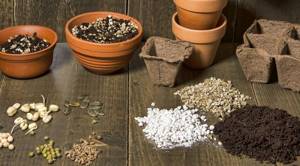
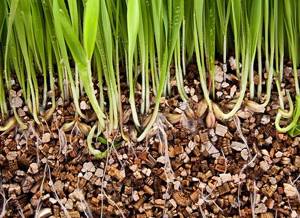
Plant growing in modern conditions can be called, without exaggeration, a creative field of activity. Gardeners, flower growers, gardeners are the creators and creators of a piece of paradise on earth. Having adopted the necessary knowledge and made the right conclusions about the advisability of using vermiculite, with the help of this valuable mineral they will be able to significantly improve the quality and quantity of their products.
Properties
The main properties of expanded vermiculite:
- high moisture absorption capacity;
- low hygroscopicity;
- does not decompose, has a low level of abrasion;
- prevents the development of decay processes;
- increased thermal insulation properties;
- chemical inertness;
- ability to act as a soil loosener;
- breathability.
Vermiculite is used to add looseness to the soil.
